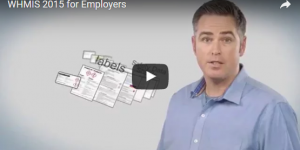
In 2015, Canada’s Workplace Hazardous Materials Information System (WHMIS) was updated to be in line with similar systems in the United States and other countries. It’s now referred to as WHMIS 2015 and also as the globally harmonized system (GHS). It’s being rolled out gradually until 2018, to give workers, employers, and suppliers enough time […]










